Personal care for the elderly
Personal care generally refers to anything that’s done for you that’s of a personal nature. It’s commonly provided to people who need a bit of help due to disability, illness or old age, and aims to help them stay as independent and healthy as possible. Find out what it includes, why and how people use it, and how the carers on Elder’s platform can help facilitate it here.
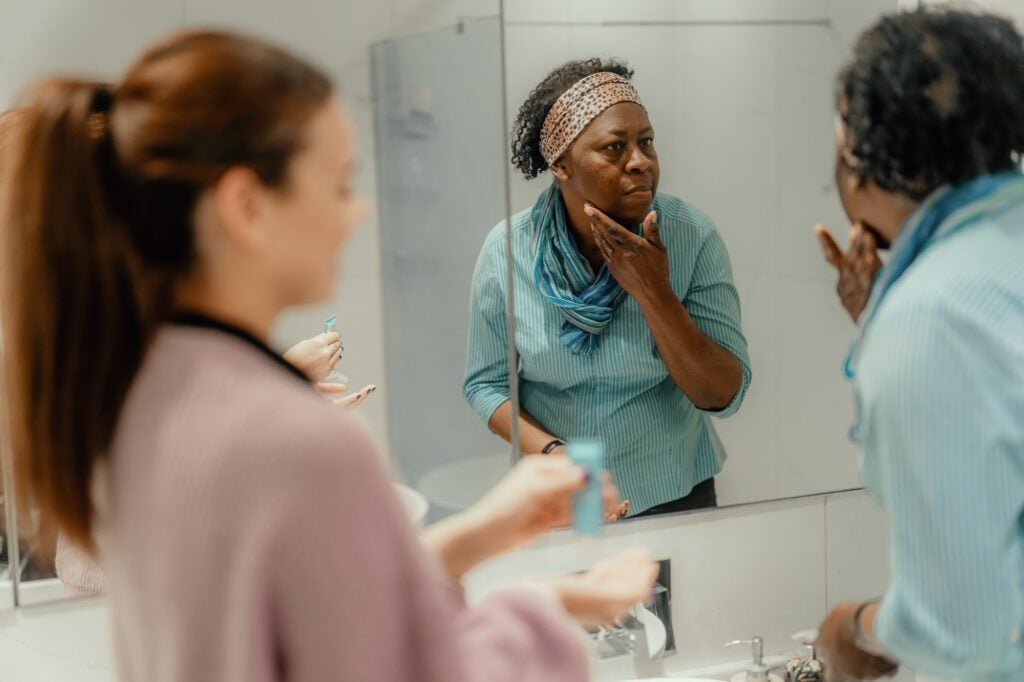
Quick overview
Personal care is a broad term that can include anything from toileting assistance to getting washed and dressed in the morning.
As a person ages they may experience mobility difficulties, struggle with their balance, or have trouble remembering things. This may mean they need some help with personal care.
While personal care is commonly provided in residential care, receiving personal care at home (as part of domiciliary care) can help a person retain as much independence as possible.
What is personal care?
Personal care helps people with daily tasks and personal hygiene – tasks of a personal nature that are essential to living a healthier life.
It should be as much about preserving dignity as it is about hygiene and well-being. It can be difficult to accept help in the more private areas of life after managing independently for decades. An older person may feel embarrassed, or find the idea of needing help from a professional carer patronising. It’s important when arranging personal care to involve them at every step – ensuring support is only offered where needed and that it’s delivered in a way they find the most comfortable.
‘Personal care’ is quite a broad spectrum and as such, different care providers may class different tasks under personal care. You many find any of the following listed under this service.
Is the legal or CQC definition of personal care different?
Yes, the Care Quality Commission (or Care Inspectorate in Wales and Scotland) has a slightly narrower view of what they count as a personal care- focusing on more intimate tasks. Their definition covers physical assistance, prompting or supervision of –
- Eating or drinking (including the administration of parenteral nutrition)
- Toileting (including in relation to menstruation)
- Washing or bathing
- Dressing
- Oral care
- The care of skin, hair and nails (except for nail care provided by a chiropodist or podiatrist)
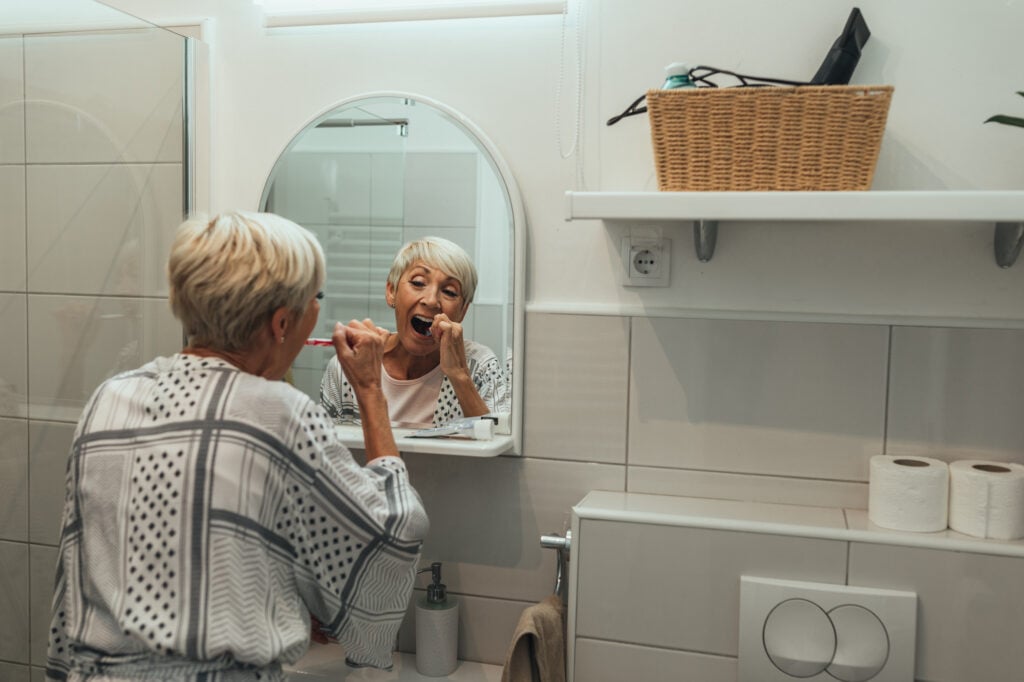
Personal care, Elder and the CQC
Elder is an introduction agency. This means we help families and self-employed carers find and connect to each other safely, and manage their on-going relationship successfully. However the agreement for care sits directly with each family and their carer. This keeps care personal, allowing them to work together as a team on care decisions and create a comfortable daily routine.
Because we don’t instruct carers on how they should be providing care, we are recognised by the CQC and Care Inspectorate, but are not required to be registered with them.
However, everything we do at Elder is underpinned by respect, transparency, safety, and integrity. You can read our full safety and trust policy here.
Are there any intimate tasks that don't count as 'personal care'?
Yes, a number of tasks related to toileting and medication for example, are classed as ‘nurse-led or nursing care‘. This means they should only be provided by a registered nurse or someone with the appropriate training or supervision to do so.
Thee full list of nurse-led tasks include –
- STOMA care
- PEG care
- Wound care
- Ventilation, Oxygen Support, BiPAP or CPAP Support
- Controlled Drug Administration
- Glucose readings via finger pricks
- Injections
- Pessaries, Enemas, Suppositories
- Foot care
Self-employed carers on the Elder platform are not be expected to provide this type of support.
Why might someone need help with personal care?
It can be difficult to know when the right time is to get some outside help with personal care tasks. It’s common for the older generation to be uncomfortable talking about private things that happen in the bathroom, they may find it upsetting that they need help, or simply may not realise they do in the first place.
There are some general signs you can look out for when trying to understand whether your loved one could benefit from personal care services.
There may be other, more obvious occasions where personal care is needed too. For example, if they’re recovering from illness or surgery and need temporary help, or if they’re being supported by a family member or friend who is uncomfortable with tasks of a more intimate nature.
- If they're wearing the same outfit regularly or dirty clothes
- If they're dressing inappropriately for the weather or a occasion
- If their skin or hair is dirty, dry, or greasy, or they have an unpleasant odour
- If their hair is regularly very messy or tangled
- If their finger and toenails are untrimmed
- If they have bad breath, mouth ulcers, or visible plaque on their teeth.
- If they're experiencing incontinence and toileting 'accidents'
- If their home is often unclean and disorganised
- If they start to decline visitors or withdraw from family and social occasions
Personal care and dementia
Personal care and hygiene, in particular, can become difficult for people living with dementia. Memory loss – a common symptom of dementia may mean they forget to wash, or struggle to remember how to do certain tasks, or do things in the right order.
They may also need guidance to ensure they are dressed appropriately for the weather, or for specific places or occasions. Sometimes people with dementia may also become agitated or confused when it comes to maintaining a personal care routine, this is because dementia can affect their perception of time and place, or the objects around them.
Sometimes a quick verbal prompt can be enough to help a loved one with dementia get back on track. However, over time support needs can change as the dementia progresses, and professionals carers can help make these gentle and considered changes.
A regular personal carer provides better continuity of care – meaning they can build a strong relationship with the person they’re caring for based on trust and understanding – offering support and encouragement and sticking to well-established routines to help the person they’re caring for feel relaxed in their company. That could be as simple as ensuring a favourite, familiar shower gel is always used, or handing them the soap when it’s time to wash.
The role of any carer is to support their care recipient’s independence. In the case of dementia care, a personal carer will help the person they’re caring for to make their own choices when it comes to their personal care and retain vital skills for as long as possible.
How to have a conversation about personal care
What are the benefits of arranging professional personal care?
First and foremost, promoting good personal hygiene supports physical health by preventing illness and the spread of infection. It may also help certain health complaints from getting worse or reoccurring, such as skin conditions or urinary tract infections.
For families having someone there to monitor and encourage hygiene can provide a great deal of peace of mind. Speaking of family, some find that having to provide personal care to an older relative can be a uncomfortable experience for all involved. It may change their relationship and how they view one another, or cause friction with other family members who aren’t sharing the responsibility.
Having someone you can rely on to take on intimate tasks can help you focus on enjoying time together as a family. Personal care may also promote better mental health. Looking and feeling your best is important in maintaining confidence and self-esteem. A warm bath and the use of scented products at the end of the day may help a person to relax and feel ready for bed too.
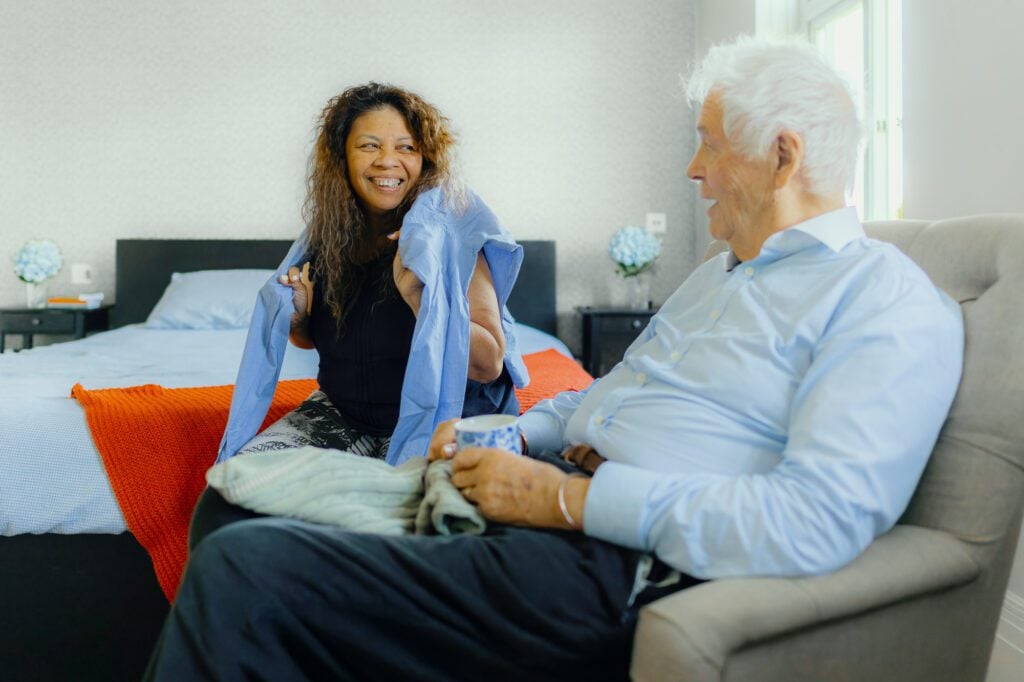
Living in Scotland? Get money towards your personal care
Since 2002, everyone in Scotland over the age of 65 has been entitled to free personal care if they are assessed as requiring it by their local social work department.
Those who are eligible can receive a flat rate payment of £248.70 for personal care per week – this adds up to over £1000 a month, and could cover the bulk of your care costs.
Find out more about how it works in our guide below.
Where can personal care be provided?
Personal care can be provided both in at home (called domiciliary care), or in a care home setting.
For people who are independent the majority of the time and just need a little help or supervision during certain tasks, they may be suited to occasional care visits in their own home.
Depending on the home care provider you choose, these regular visits can usually be arranged so that they fit around personal routine and the specific tasks you need help with. For example, if your joints get stiff during the night, you may wish to arrange morning visits so that a carer can help you get out of bed and shower safely – but be perfectly capable of managing your bedtime routine alone.
If you need a higher level of support but wish to stay in the familiar surroundings of your home, then live-in care services may be better suited. A dedicated carer will move in to the home to provide personal care, as well as practical assistance with other day-to-day tasks too, such as running errands, supporting social interaction and pet care. For families this can provide better peace of mind knowing someone is with their loved one 24/7.
Before arranging care at home, it’s important to ensure it’s a suitable and safe environment, which us why it’s a good idea to ask your GP for an occupational therapist home assessment. They’ll be able to suggest small adaptations and changes to routine that may make life easier and safer when receiving care.
For people with complex care needs moving into residential care may be the best and safest option. A staff of care home assistants will be on hand 24/7 to provide supervision and help with personal care. Care homes can also offer a great sense of community, which can benefit those with a smaller social circle.
Choosing the right personal carer

If you’re looking into home care, many companies like Elder allow you to choose your own carer. The professional providing personal care is likely to become a fundamental component of your or your loved one’s life. Therefore it’s essential to consider personality as well as the relevant experience and training.
A personal care assistant should offer a friendly face and gentle encouragement. Above all, they should be someone you or your loved one is comfortable with, and trust.
It’s important to remember that even if you get on well outside the bathroom, a rapport and rhythm may not happen instantly when it comes to personal care. You may need to give it some time for things to naturally evolve.
It’s crucial that a carer respects personal boundaries. The carer should be respectful of your or your loved one’s wishes and work to support their independence and dignity. You should always feel in control and able to freely voice when something isn’t done in your preferred way.
Find your ideal carer
We have connected over 5,ooo families and carers across Great Britain. Search for yours today.
Read more on personal care
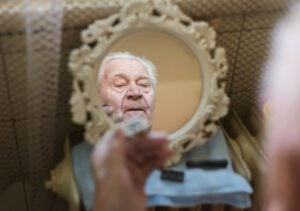
Bath aids for elderly – finding the right solution for your needs
Bath aids for elderly Getting in and out of a bath tub or moving around the bathroom safely can become difficult as we get
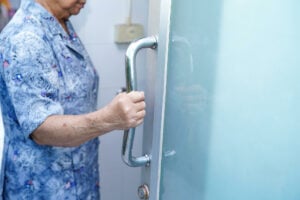
Helping with personal care and elderly incontinence
Helping with personal care and elderly incontinence Incontinence is something which many elderly people experience, and yet it is a subject which is rarely discussed.
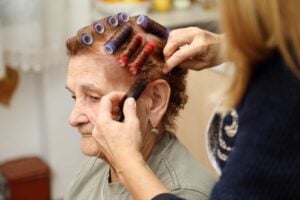
Caregiver tips: haircare for the elderly
Caregiver tips: haircare for the elderly Caring about the way we look, and the image that we present to the world doesn’t stop when we